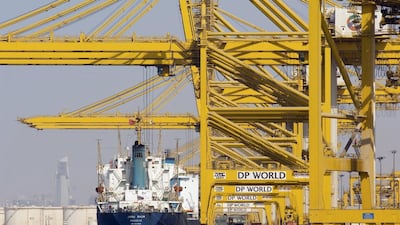Trade and investment ministers from the world’s 20 largest economies have reaffirmed their commitment to increase co-operation and strengthen international frameworks to help global trade and investment recover from the Covid-19 pandemic.
"We will continue to do whatever it takes and to use all available policy tools to minimise the economic and social damage of the pandemic, restore global growth, maintain market stability and strengthen resilience," G20 ministers said in a joint communique following their virtual meeting on Tuesday evening.
The ministers, who have held two extraordinary meetings this year to coordinate a joint economic response to the pandemic, underlined the risks posed by the coronavirus outbreak to all countries, particularly developing and least-developed nations.
Trade and investment, they said, should act as engines of “growth, productivity, innovation, job creation, development and poverty reduction”, laying the foundation for a sustainable and inclusive global economic recovery
“We will continue to take joint actions to strengthen international cooperation and frameworks,” the communique said.
Saudi Arabia’s Minister of Commerce Majid Al Qasabi led the discussions at the meeting. The kingdom holds the rotating presidency of the G20 this year.
The Covid-19 pandemic led to widespread movement restrictions and border closures, bringing the global trade, travel and tourism sectors to a grinding halt in the first half of the year.
Global trade is expected to decline 27 per cent in the second quarter of this year, compared to the previous three months, according to data by the UN Conference on Trade and Development. Global production and manufacturing output are set to decline by 9 per cent compared with a year ago, UNCTAD said in May.
G20 ministers also reviewed the progress achieved so far on an action plan to improve the international competitiveness of micro, small and medium-sized enterprises (MSMEs), increase economic diversification and strengthen international investment.
In May, the G20 laid out short and long-term responses to minimise the impact of the pandemic on the global economy. Long-term measures included supporting the necessary reform of the World Trade Organisation and the multilateral trading system and building resilience in global supply chains.
Short-term collective actions recommended by the G20 Trade and Investment Working Group include removing trade barriers, facilitating trade, improving transparency, enhancing the operation of logistics networks and supporting MSMEs.
“We welcome the progress achieved, in particular, the termination of many trade restrictive measures and the implementation of trade facilitation measures,” the ministers said.
Any emergency trade measures to tackle Covid-19, should be “targeted, proportionate, transparent, temporary [and should] reflect our interest in protecting the most vulnerable”, they said. Such measures, if necessary, should not create barriers to trade or disrupt global supply chains but should be consistent with the WTO rules, they added.
The G20 also reaffirmed its commitment to work “constructively” with other WTO members for necessary reform of the world trade body.
“We recognise that this reform should improve the functions of the WTO and we encourage a constructive discussion,” the communique said.
The ministers said addressing tensions among trading partners and developing “mutually beneficial trade relations” are critical in post-Covid-19 economy.
The G20, they said, will continue to work to ensure a level playing field, as there are “structural problems in some sectors, such as excess capacities, [that] can cause a negative impact".
Economic diversification and foreign direct investment (FDI) are key to reviving global economic growth, job creation and capital accumulation, according to the communique.
It added that the impact of the pandemic on FDI flows was “immediate”, further affecting investment flows that were largely stagnant over the past decade. The pandemic also significantly widened the already-large gap in investment needed to meet the UN’s sustainable development goals, the minister said.
“Economic diversification reduces vulnerability to economic shocks and remains an important goal for all countries, particularly developing and least developed countries,” the ministers said.


